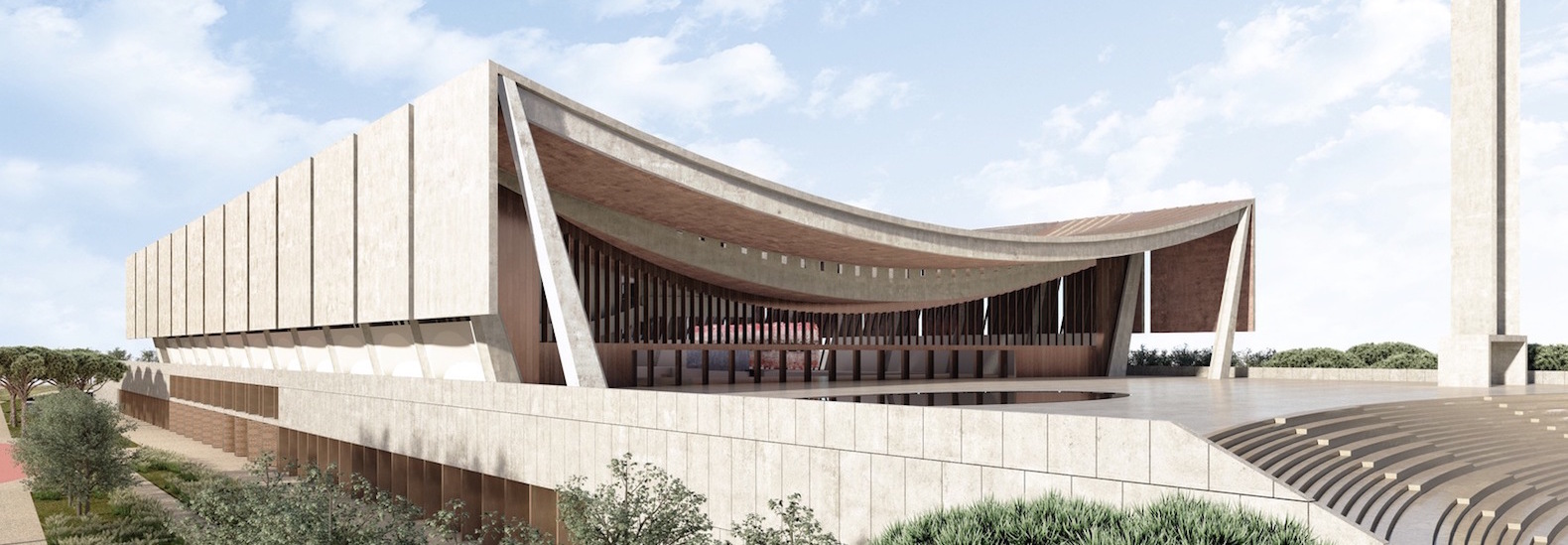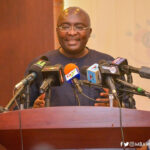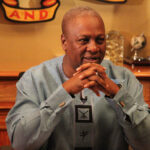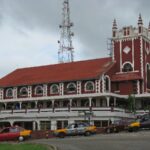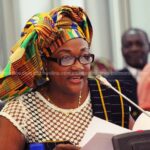It’s impossible not to be surprised that the idea of building a national cathedral on public lands came from President Akufo-Addo, the same man who swore to protect the public purse. To do what the president intends to do, the State must demolish homes of judges and prime and historic properties at a cost to Ghanaians. Real estate developers estimate the land alone is worth over 70 million dollars, the same amount the State needs to build the Tema motorway interchange. The cost to Ghanaians will triple if we add the value of the properties and the cost of the demolition and the permanent homes for the judges. It should be immediately apparent to the government that a cathedral is an unquestionably daft use of public lands and scarce national resources.
The Akufo-Addo government has had to borrow eight billion Ghana cedis to plug the hole created in the economy by the collapse of the seven Ghanaian banks. It plans to mine in the whole Atewa forest for two billion cedis worth of bauxite to get the Chinese government to fund road projects around the country. Ghana has only 55 ambulances for a population of 30 million, thousands of schools under trees, and entire communities living in poverty. It is an absolute disgrace that a cathedral is what a government struggling to raise funds for critical life-changing programs has chosen to prioritize and spend scarce resources on.
Unconvincing arguments
70 percent of Ghanaians are Christians, 15 percent Muslims, and 12 percent traditional believers while the rest belong to minority religious groups. Ghana hasn’t had any of the violent religious clashes that pervade vast swathes of Nigeria, Chad or the CAR. Despite the dominance of Christians in the public sphere, State actors have made deliberate moves to include other faith groups in national affairs, at least, the other two dominant ones. Their leaders have been elected to the Council of State, the National Peace Council, and their rituals are performed at national events. It may not be much, but analysts believe this semblance of equal treatment enhances interfaith relations, which, in turn, helps to maintain national cohesion and peace-building.
But politics is the place good reason goes to die. We were here when people marched to sully their hard-earned reputations on the Montie Three petition table. So it’s not surprising that government officials and relatives of the president are performing all kinds of mental gymnastics to defend the project. “The cathedral is a good idea, must be built,” said one tweet, as though a temple would add any value to our quality of life. They say the national cathedral would boost tourism, but so would healthcare and education. At least, health and education would enhance the quality of our lives, and they are things a government is required to build.
Christians who support the project say they deserve the land because they built most of the best of the schools in Ghana. This claim is what happens when a country refuses to confront its colonial heritage. The idea that we (the people whose ancestors were enslaved and colonized) owe the Church gratitude and acres of prime land because they built the schools is irredeemably flawed. The colonial Church didn’t pay for the schools; the money came from stolen wealth and labor from locals. They didn’t build schools to educate the entire local population but to provide ‘civilized’ support staff for the British colonial government. Perhaps this isn’t clear to many because we have government textbooks listing education and Christianity as the benefits of colonization.
Officials say the Cathedral would host national events such as the inauguration of presidents. If we needed more proof of non-thinking behind this project, this is it. Those making these arguments need to stop and ponder what would happen if we elect a Muslim president. What about a traditional believer? Since national ceremonies reflect some parts of the three main religions, are these people saying the Wulomei would be welcomed to pour libations at this venue on the day? As a non-denominational national church funded in part with public funds, would Bishop Obinim and Obofo be welcomed to host services there? They know as well as we do that the claim that the facility would be inclusive is a lie.
The real agenda
No matter how the Akufo-Addo government spins it, the building of the cathedral has nothing to with praising or thanking God. Neither has it got anything to do with a Christian president “addressing the missing link in the national architecture.” The theories from some clergy that a cathedral shows a Christ-centered governance system are too ludicrous for words. A Christ-centered government wouldn’t be rushing to mine in Atewa forest, and we wouldn’t be living in such filth. After all, to be Christlike is to care about the environment.
Everyone, including the promoters of this ridiculous idea, knows that we do not need a church for “national purposes” as the president said at the launch. It is about raw power, money, and privilege for both the Church and the government. For the president and his people, this move is in service of the #AkufoAddo2020 campaign. As part of his transformation after the bruising 2008 elections, he gave himself wholly to the church, not just mainstream but the Charismatic strand where preachers could direct their congregation to vote a particular way. And he seems to firmly believe it was the prayers of the pastors and the Christian community that got him elected. It’s not a coincidence that Pastor Owusu Bempah is in his inner circle and not the preachers from his mother church.
They know securing the loyalty of the largest religious group will translate into votes on election day and forever political currency for the NPP. The same reason governments have inserted the State into the management of Muslim pilgrimage to Mecca. By expending national resources to sponsor Muslim supporters to Mecca as well as managing the Hajj village in Accra, they maintain a significant vote bank. Nana Addo intends to use the cathedral to set his party up for political supremacy.
The Church’s hope
The Ghanaian Church, particularly the Charismatic strand which has grown and now sees itself as the true church, has never cared about the State or social justice. It is impossible, given the kind of doctrine they preach. They care more about the individual’s prosperity thancollective wealth. They define poverty as a lack of God’s blessings and grace. Therefore instead of their members pushing for structural changes in the way society works, they’re fasting 21-days for rent and other material blessings.
Never mind that Jesus and the prophets who came before spent their time on earth fighting against injustice and community. Never mind that in many chapters in the New Testament Christ’s suffering was an example for believers to follow. Due to this faulty theology, also known as Prosperity Gospel, many Ghanaians now demand solutions to political and economic problems from God. It will take a full essay to explain how toxic this theology is to nation-building but my point is, the Church needs the State not to work so Ghanaians will keep sowing seeds for cars, houses, and healthcare. It’s why the leadership has refused to tell the government to drop this glaringly bad idea.
For the record, Ghanaian Christians do not lack spaces to gather and pray. They own the public square. Public events open with Christian prayers. They’re preaching on buses, streets and in markets. They have humongous churches too. The largest indoor venue in Ghana, the Perez Dome, is owned by the church. They do not need government’s help if they so desperately need a cathedral.
But leaders, particularly those from the Charismatic who support the project have spent years courting presidents in the hopes of finding one they can bend to their will. They found one in the late President Atta Mills for a minute. They got him to ban the pouring of libation at State events. They have long hoped for an opportunity to define and shape public policy. They finally get to do that with Nana Addo.
In the end, it’s a win-win for the two groups – the Church gets more power while the president and his party becomes the Christian party. It’s why despite the well-reasoned arguments about the threat of the project to national cohesion and stability, the Church and the government remains adamant. The only way this project will make sense is for the government to back out, allowing the Church to pay for the land, the demolition, and accommodation for the judges and other groups. It is crucial for Ghanaian Christians to realize that this isn’t about God and it is up to us, as the majority to compel our leaders to do right by all citizens. It is time to ask, what would Jesus do?

